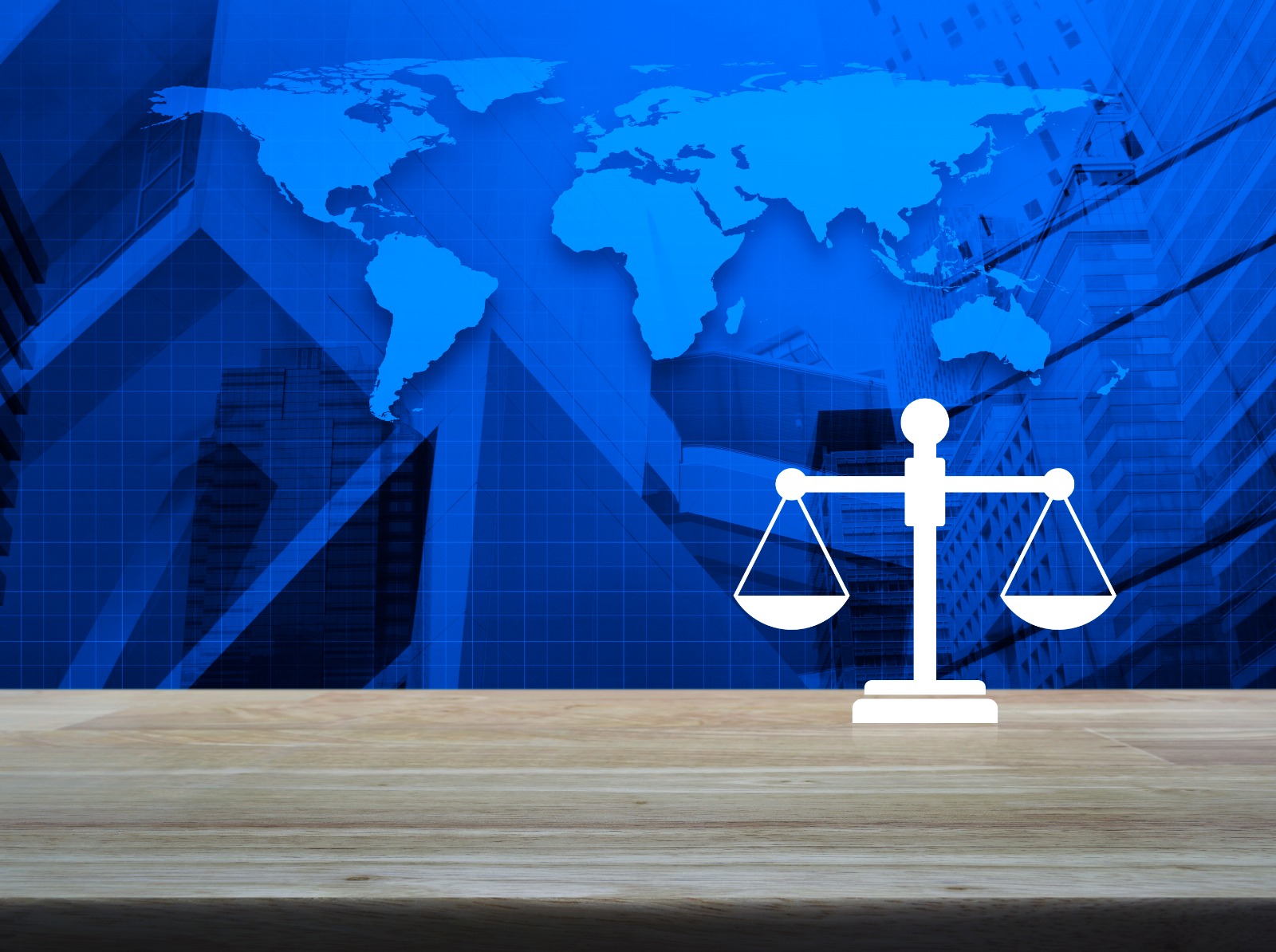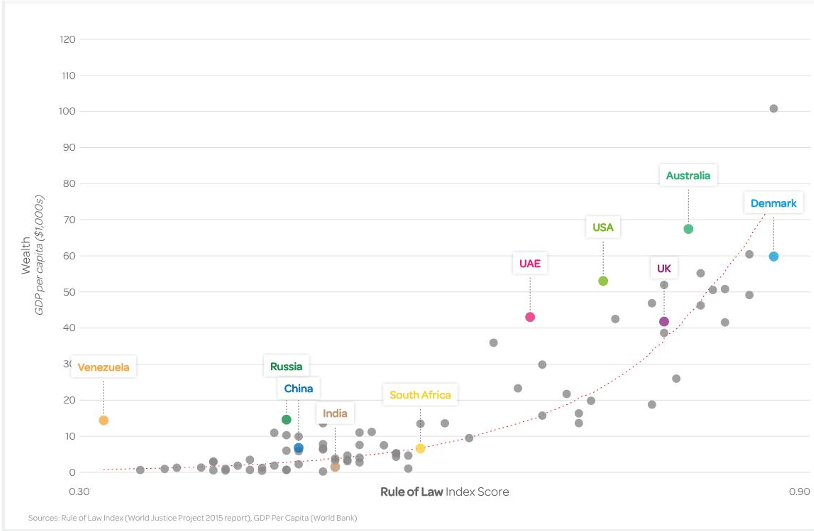Litigation funding & rule of law

What is the rule of law?
The Rule of Law is notoriously tricky to define but broadly speaking it is a number of principles which address the way a community is governed, as well as the way in which those principles are applied i.e. with generality, clarity, publicity and stability.[1] It requires the existence of certain institutions and processes (such as courts, and an independent judiciary) to administer those principles.
The World Justice Project Rule of Law Index has attempted to portray the rule of law in 126 countries by providing scores and rankings based on eight factors: constraints on government powers, absence of corruption, open government, fundamental rights, order and security, regulatory enforcement, civil justice, and criminal justice.
Effective rule of law brings various benefits such as reducing corruption, combating poverty and disease, and protecting people from injustices. Without rule of law, individuals and businesses are unable to secure property rights, enforce contract, and obtain effective redress against other individuals, businesses or the State. Uneven enforcement of regulations, corruption, insecure property rights, and ineffective means to settle disputes undermine legitimate business and deter both domestic and foreign investment. Rule of law can therefore have a profound impact on the fairness and overall prosperity of a society.
As seen in the graph below[2], higher GDP per capita is strongly correlated with a higher rule of law index score.

One might argue that this is just because countries with more wealth have more to spend on improving public services like their criminal and civil justice systems. Consider however the example given in Why Nations Fail by Acemoglu and Robinson: the city of Nogales, half of which lies in Mexico and half of which lies in the USA. The half in the US has an average income of $30,000 and access to goods like healthcare, education and effective law and order. The Mexican half lacks such goods, and the average annual income is $10,000 and the provision of law and order is far worse than the US half of the city. Despite sharing the exact same geography and climate “vastly different political institutions create different economic incentives and institutions… differing levels of economic and social prosperity”. Throughout the book Acemoglu and Robinson argue that the differences between societies which prosper and those which do not come down to whether or not they have institutions and processes which place power broadly and curb the power of elites to expropriate businesses; In short effective rule of law is necessary for economic prosperity. This makes sense if one thinks about trying to invest in a country where you cannot be sure if your contract will be honoured.
Litigation funding & rule of law
A critical part of ensuring rule of law applies is ensuring that justice remains accessible. The rising costs of litigation has made such access prohibitively expensive for many individuals and businesses. This is coupled with continuing cuts to legal aid. When first introduced in 1950 legal aid applied to roughly 80% of the population with a means tested entitlement; by 2008 it applied to just under 30%.[3] The need for alternative sources of finance for claims with good legal merits but lacking the funds to litigate has increasingly become clear; in a lecture on litigation funding Lord Neuberger (then President of the Supreme Court) argued that:
“In order for a state to remain inclusive, it must not just express a commitment to the rule of law: it must provide effective mechanisms through which its citizens have genuine access to the courts. Only then can they begin to have equality before the law; only then can they hold the powerful to account; only then can they render their legal rights a true reality rather than words on paper. Where significant groups of citizens are financially unable to gain access, one of the most important means by which inclusive societies prosper is missing or at best weakened… the possibility exists for society to become exploitative, as some elements take advantage of the fact they can ignore the law with relative impunity.”[4]
Litigation funding compaines like AxiaFunder increase access to justice and ensure the rule of law is realised, because it helps ensure that the cost of bringing a case to trial do not prohibit individuals or businesses with meritorious claims from accessing justice. AxiaFunder’s cases assessment process includes rigorously assessing the cases for good legal merit and most of the cases we fund would not be able to access justice without third party litigation funding. AxiaFunder can therefore offer investors an ethical investment with the rare combination of high potential returns and positive social impact. While our assessment ensures we only bring forward cases we deem to have high merits this does not eliminate the risk that you could lose all of your money if the case fails.
- The Investor Appropriateness Test
- Risks for investors in litigation funding
- Understanding Your AxiaFunder Investment Portfolio
- AxiaFunder Portfolio Investment Returns
- Highly Commended Innovative Lenders Award
- New Podcast on the Legal Funding Journal
- 4th Way Review on Dieselgate Portfolio Investment
- AxiaFunder - actions taken to protect investors
- AxiaFunder Wins Innovative Lender of The Year Award
- AxiaFunder Housing Disrepair Investment Returns
- AxiaFunder FCA Direct Authorisation
- AxiaFunder won Innovative Lender of the Year Award
- Access to litigation investments
- The Peer2Peer Finance News Power 50 2022
- AxiaFunder Review by P2P Platforms
- AxiaFunder Review by 4thWay
- AxiaFunder interview with CEO Cormac Leech
- AxiaFunder Targets Double-Digit IRRs
- AxiaFunder Review in iTech Post
- AxiaFunder launched new litigation finance product